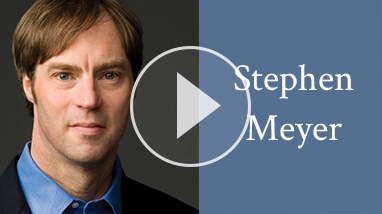
James Tour and Stephen Meyer on the Origin of Life, Pt. 1
On this episode of ID the Future, James M. Tour and Stephen C. Meyer begin a discussion about the hard problems facing researchers trying to discover how the first life could have come about naturalistically. Meyer is the director of the Center for Science and Culture; Tour is a world-renowned synthetic organic chemist with over 700 research publications and multiple major recognitions, including TheBestSchools.org naming him one of the 50 most influential scientists in the world today. Though he doesn’t sign on to ID theory, he says he’s sympathetic with the idea, and certainly not impressed with any naturalistic explanations for the origin of life. In this first of a three-part series, they explore problems ranging from the extreme improbabilities associated with protein assembly, Read More ›



